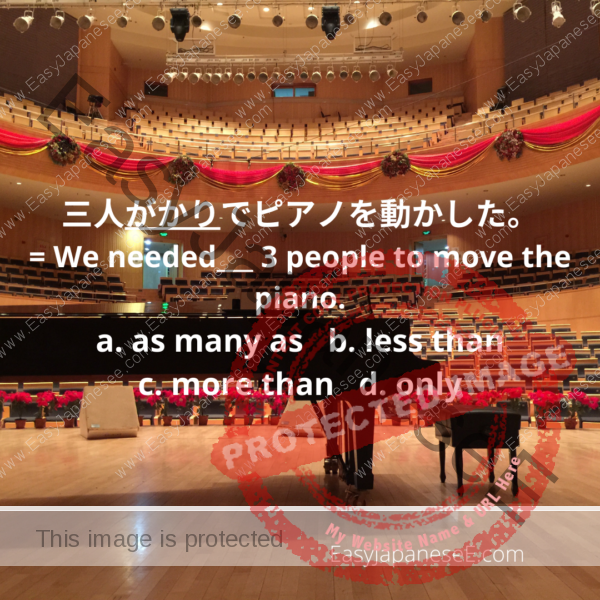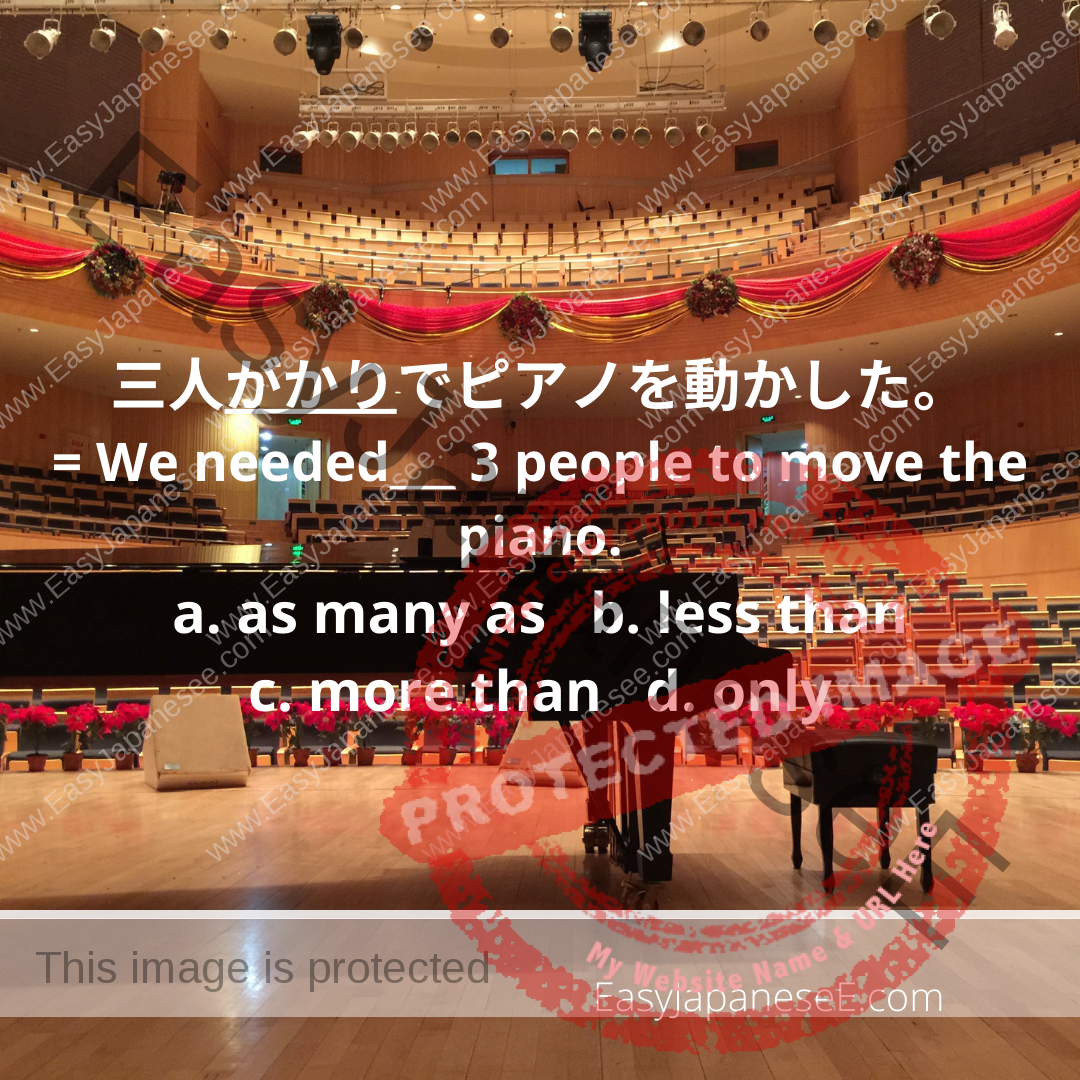
Today’s Grammar Point: ~がかり
[number] + [counter] + がかり is often used the emphasize the amount of time and effort needed in a certain situation.
Connection
- [number] + [counter] + がかりで + [verb]
- [number] + [counter] + がかりの + [noun]
- [number] + [counter] + がかり + だ/です
Examples
三人がかりでピアノを動かした。
ピアノを動かすのは三人がかりだった。
It took three people to move the piano.一日がかりで台所の掃除をした。
台所の掃除は一日がかりだった。
It took a whole day to clean the kitchen.五年がかりでこの本を書いた。
この本の執筆は五年がかりだった。
It took 5 years to write this book.これは半年がかりの調査だった。
この調査は半年がかりだった。
This survey took 6 months十人がかりでもあの石を持ち上げることはできなかった。
Even with the effort of 10 people, we could not lift that rock up.
Variations
親がかり = depending on one’s parent(s)
わたしはまだ親がかりだ。
=わたしはまだ親のすねをかじっている。
I’m still dependent on my parents.
通りがかり = passing
通りがかりにちょっと寄りました。
As I was passing this way, I thought I’d drop in and say hello.
行きがかり = the circumstances
今までの行きがかりはわすれることにしよう.
Let’s forget everything that has happened between us.その場の行きがかりでやむを得ず承諾した.
The circumstances compelled me to give my consent.
The answer to today’s question
a. as many as
がかり is an expression to emphasize the amount of effort/time needed.

